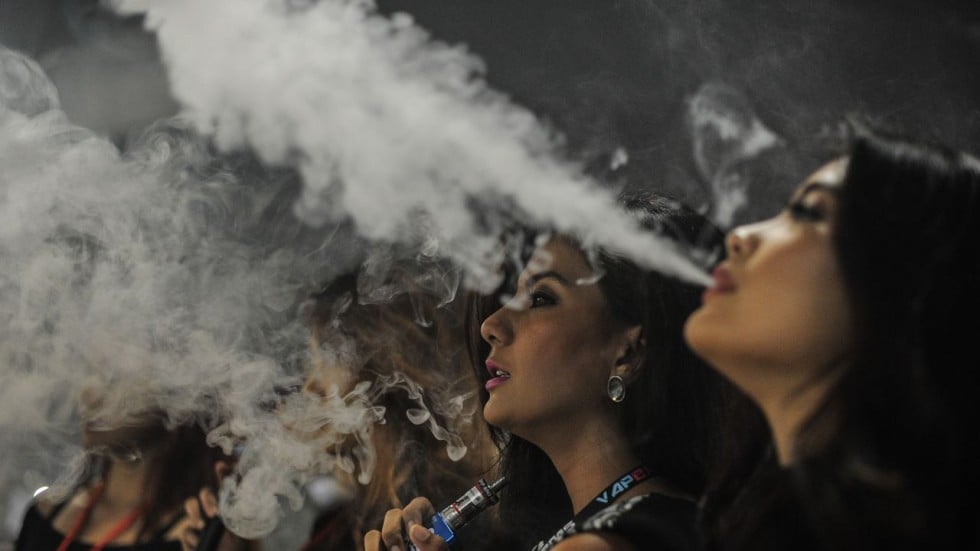But what Chinese think about Vaping as alternative of smoking?
Cigarettes in China aren’t merely the sign of a bad habit – they’ve become part of the culture. Looking to show you some gratitude? Hand him a smoke. Attending a Chinese wedding reception? Expect banquet tables stocked with packs of Double Happiness.
.
 Domestic demand alone pushes the state-owned China National Tobacco Corporation to manufacture roughly 40 percent of the world’s cigarettes every year. That makes China the greatest producer – and as the WHO points out, consumer – of tobacco in the world. A survey has been made to know China’s tobacco epidemic – and the effects of cigarette bans that have begun being implemented nationwide. Home to 320 million smokers – a little less than the entire US population – tobacco is big business in China (like really, really big business), generating more in tax revenue every year than the nation spends annually on the military.
Domestic demand alone pushes the state-owned China National Tobacco Corporation to manufacture roughly 40 percent of the world’s cigarettes every year. That makes China the greatest producer – and as the WHO points out, consumer – of tobacco in the world. A survey has been made to know China’s tobacco epidemic – and the effects of cigarette bans that have begun being implemented nationwide. Home to 320 million smokers – a little less than the entire US population – tobacco is big business in China (like really, really big business), generating more in tax revenue every year than the nation spends annually on the military.Domestic demand alone pushes the state-owned China National Tobacco Corporation to manufacture roughly 40 percent of the world’s cigarettes every year. That makes China the greatest producer – and as the WHO points out, consumer – of tobacco in the world.
But what Chinese people think about vaping as an alternative of smoking?
Back in early 2003
 In 2003, a Chinese pharmacist named Hon Lik patented the first version of today’s standard e-cigarette: a device that vaporizes liquid nicotine through a heating element. China has become the largest E cigarette producer country. But now in what Fei calls a “period of rapid development,” China’s vaping industry is expanding too fast not to notice. Whereas just two years ago, it would have been hard to spot a vape shop in first-tier cities like Shanghai, Beijing or Guangzhou, today, there are close to a hundred in each, all selling a wide range of vaporizers and e-liquids.Walk around Beijing's Gulou area, for example, and you will see shops with goofy names like 'Vape Professor' or 'Vape Saint' alongside more traditional ones selling tobacco cigarettes.
In 2003, a Chinese pharmacist named Hon Lik patented the first version of today’s standard e-cigarette: a device that vaporizes liquid nicotine through a heating element. China has become the largest E cigarette producer country. But now in what Fei calls a “period of rapid development,” China’s vaping industry is expanding too fast not to notice. Whereas just two years ago, it would have been hard to spot a vape shop in first-tier cities like Shanghai, Beijing or Guangzhou, today, there are close to a hundred in each, all selling a wide range of vaporizers and e-liquids.Walk around Beijing's Gulou area, for example, and you will see shops with goofy names like 'Vape Professor' or 'Vape Saint' alongside more traditional ones selling tobacco cigarettes.
As China moves to lower tobacco use, vaping looks poised to play a
pivotal role, offering smokers an increasingly convenient – and potentially
healthier – alternative to cigarettes. The culture is developing
quite quickly since people are raising their standards
for health, suggests Brian Bai, the founder of Tianjin’s first vape lounge,
which opened last December. “Vaping is no doubt seeing an upwards trend, and
cigarettes will slowly get replaced by vape.
In the years following his invention, a production hub was established in southern China, exporting hardware to countries all over the globe. Today, roughly 90 percent of the world’s e-cigarettes and vaporizers still come from Shenzhen. Like iPhones, brand-name vapes are manufactured in China and exported abroad before returning to the mainland again as ‘imports’ and taxed accordingly.
Until recently, the Chinese government had little reason to regulate the industry. Vaping devices were primarily created for overseas consumers, after all, not Chinese.But as a growing number of mainlanders adopt the hobby and open vape shops of their own, the dearth of regulatory framework is turning out to be a big problem. When applying for a business license for his shop, Vape Club, last fall, Fei says he could choose from any number of classifications: electronics, wholesale trade, tech, bio-tech and even ‘cultural development’ company – all of which have been used to register vape retailers in the past.The licensing official looked at me and asked, so what are you actually selling, tobacco products or electronics? and I just said, ‘well, there is still no law to define this thing, but our products are probably closest to electronics – there is no tobacco involved – so we’ll just define our shop as an electronics store.

Confusion over what exactly constitutes an e-cigarette isn’t unique to China – a Google search rounds up plenty of literature on the subject. While the media often refers to all vaping devices as ‘e-cigarettes,’ the term is typically reserved for those that look and feel like traditional cigarettes. E-cigs sold in convenience stores come with prefilled cartridges of e-liquid, have limited flavor options and are disposable.
Then there are ‘vaporizers,’ the devices you’ll find in an actual vape shop that span from ‘advanced personal vaporizers’ (APVs) or ‘vape pens’ to walkie-talkie-size ‘mods,’ which are more customizable and more expensive.
 Instead of replacing cartridges, users pour fresh e-liquid (a
substance sometimes known as 'vape juice') into the device. Vaporizers, not
e-cigarettes, are what make the subculture. There’s been a lot done for health in China over the
last 10-15 years. Death rates are going down. Smoking is one of the few things
that is trending in the opposite direction... and I hope china will choose to
take it seriously. And every regarding this it is seems to me - every smoker
will be a potential vaper.
Instead of replacing cartridges, users pour fresh e-liquid (a
substance sometimes known as 'vape juice') into the device. Vaporizers, not
e-cigarettes, are what make the subculture. There’s been a lot done for health in China over the
last 10-15 years. Death rates are going down. Smoking is one of the few things
that is trending in the opposite direction... and I hope china will choose to
take it seriously. And every regarding this it is seems to me - every smoker
will be a potential vaper.



Comments
Post a Comment